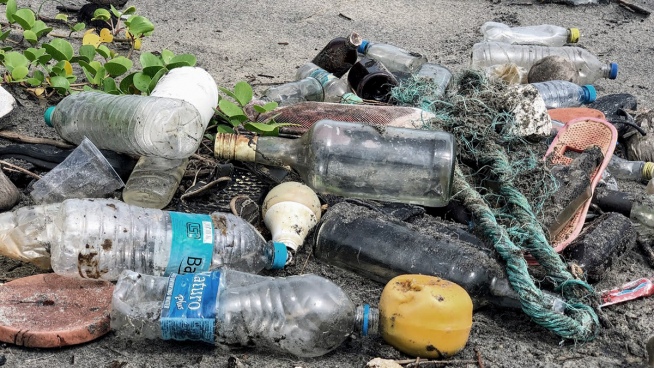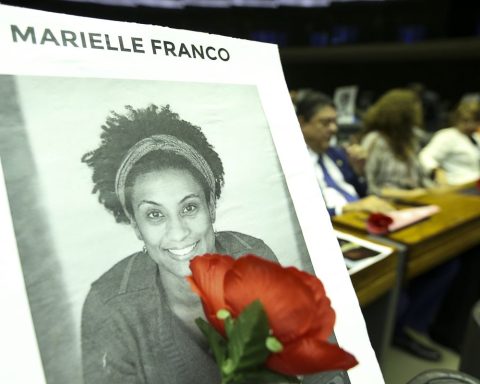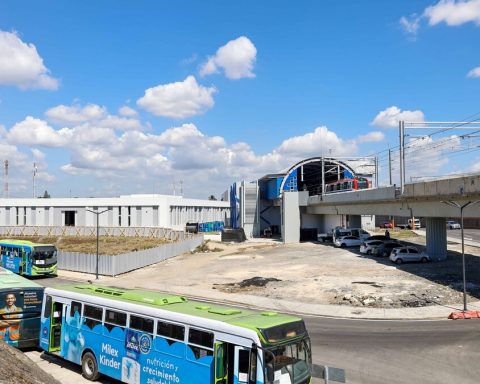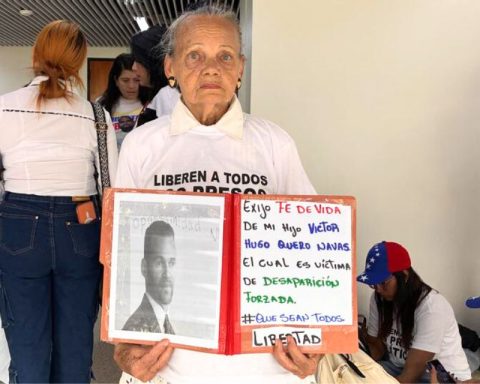A report prepared by the United Nations (UN) warned on Monday that world leaders “they have failed in their battle against climate change”and the body’s secretary general, António Guterres, described the study as “An Atlas of Human Suffering”.
The report’s data focuses on effects, adaptation and vulnerability, revealing how people and the planet are “crushed” by climate change, according to the UN.
Guterres said the report is “an indictment of failed climate leadership. Almost half of the population lives in a danger zone, at the moment. Many ecosystems have reached the point of no return, at the moment. Pollution from Unchecked carbon emissions push the world’s most vulnerable population onto a path of destruction, for now,” the secretary said.

He also stressed that the world’s biggest polluters are to blame for setting fire to “the only home we have,” and that coal and other fossil fuels “are suffocating humanity.”
At the same timehalf of the world’s population is already “vulnerable” to the impacts of climate changeand the inaction of the leaders reduces the possibility of a “livable future” on the planet, the UN warned through its website.
The new report of the United Nations Intergovernmental Panel on Climate Change (IPCC) showed that the consequences of global warming caused by human activities are not limited to the future.
In this sense, droughts, floods, heat waves (periods of strong heat), fires, food insecurity, water scarcity, diseases, rising waters, affect between 3,300 and 3,600 million people, warned from the agency.

Meanwhile, IPCC experts mentioned that if the world does not drastically reduce greenhouse gas emissions, it will have unavoidable and “sometimes irreversible” impacts in the coming decades.
Half of the world’s population is already “vulnerable” to the impacts of climate change UN report
In the first part of his report published last August, they estimated that, by 2030, the temperature would reach the threshold of +1.5 degrees, the AFP news agency reported.
Related to this, the planet’s temperature has increased by an average of +1.1 degrees since the pre-industrial era, and the world committed in 2015 with the Paris Agreement to limit warming to below +2 degrees, if possible + 1.5 degrees.
“In light of current commitments, global emissions will increase by almost 14% in the current decade. That will spell catastrophe. It will destroy any chance of keeping the 1.5 degree target alive,” Guterres denounced, noting as ” guilty” to the big emitting countries.
There are 300 million tons of plastic garbage and only 10% of the garbage is recycled
Approximately 300 million tons of plastic waste is produced each year, equivalent to the weight of all of humanity combined, and less than 10% is recycled. The vast majority end up in landfills or in the oceans. Since 1950, the rate of plastic production has grown more than that of any other material, far outstripping the efforts made in each country to keep the environment free from contamination.
In addition, the secretary asked all G20 governments to honor their agreements to stop funding coal-based energy and to decommission coal-fired facilities.
The report also anticipates the disappearance of 3 to 14% of terrestrial species and warns that, by 2050, nearly one billion people will live in coastal areas at risk.
For this reason, the UN argued that it is “essential” to meet the goal of limiting global temperature rise to 1.5ºC, which will require the world to reduce emissions by 45% by 2030 and achieve net-zero emissions by 2050.
“Adaptation is crucial for our survival”reacted in a statement the Prime Minister of Antigua and Barbuda, Gaston Browne, who chairs the Alliance of Small Island States (AOSIS).

Brown urged developed countries to honor their commitment to increase climate aid to poor countries, particularly to enable them to prepare for the catastrophes they herald.
In turn, the report pointed out that the suffering is even more important for the most fragile populations, such as indigenous or poor people, but it also affects rich countries, as recalled by the terrible floods in Germany or the devastating fires in the United States on last year.
In relation to Central and South America, the document pointed out that “they are highly exposed, vulnerable and strongly impacted by climate change, a situation amplified by inequality, poverty, population growth and high population density, the change in land use particularly deforestation with the consequent loss of biodiversity, soil degradation and the high dependence of national and local economies on natural resources for the production of basic products”.
Analyzing that impact, the report warned that “Many extreme events are already impacting the region and are projected to intensify, including warming temperatures and dryness, rising sea levels, coastal erosion, ocean and lake acidification resulting in coral bleaching, and increased frequency and severity of droughts in some regions, with the associated decrease in water supply, impacting agricultural production, traditional fishing, food security and human health“.
In addition, he indicated that “climate change affects the epidemiology of climate-sensitive infectious diseases in the region,” and gave as an example that “increased temperatures” can cause an increase in the prevalence of vector-borne diseases, including endemic and emerging arboviral diseases such as dengue, chikungunya and zika.

















